Constitutional Law – election petitions – burden and standard of proof in election petitions – where did the burden fall in election petitions – whether a petition could be required to discharge its initial burden of proof on a prima facie standard of proof or on a balance of probabilities – what was the required standard of proof in election petitions – Constitution of Malawi, section 44, 74, 75; Parliamentary and Presidential Elections Act, 17, 67, 70. 76, 78 & 119; Electoral Commission Act, section 8.
Jurisdiction – jurisdiction of the Supreme Court of Appeal – jurisdiction of the Supreme Court of Appeal in appeals and constitutionals referrals – what was the scope of the Supreme Court of Appeal’s powers in determining appeals challenging the election of a president – Constitution of Malawi, sections 104; Supreme Court of Appeal Act, section 22; Supreme Court of Appeal Rules, Order III rule 2(1).
Constitutional Law – election petitions – presidential election petitions – irregularities in a presidential election petition – effect of existence of irregularities leading to election of a president – whether the mere existence of irregularities on their could lead the court to nullify election results – Parliamentary and Presidential Election Act, sections 3, 68, 91, 92, 93, 95, 96, 98 & 113.
Constitutional Law – Electoral Commission – complaints arising from electoral processes – mandate of the commission to receive, record and resolve complaints – power of the commission to delegate some of its duties – whether quasi-judicial duties, including resolving disputes, could be delegated – Parliamentary and Presidential Election Act, sections 75, 97, 98 and 113
Constitutional Law – interpretation of constitutional provisions – interpretation of the term ‘majority’ as used in section 80(2) of the Constitution and section 96(5) of the Parliamentary and Presidential Election Act – whether they carried different or similar meaning in the two provisions – Constitution of Malawi, section 96(5); Parliamentary and Presidential Election Act, section 80(2)
Brief facts:
The 1st appellant, the 1st respondent and the 2nd respondent were among the contestants for the office of the President in the general election held on May 21, 2019. The Electoral Commission (2nd appellant) declared the 1st appellant winner in the elections. The 1st and the 2nd respondents moved the High Court challenging that outcome on account of what they perceived to be irregularities in the manner the 2nd appellant conducted the election. The High Court nullified the election and proceeded to make consequential orders, including an order that a fresh election for the office of President be held within one hundred and fifty days from the date of that judgement. It found that there was an undue return and undue elections. The judgment aggrieved the appellants prompting the instant appeal against the whole of the High Court judgment. Issues
- What was the extent of the powers of the Supreme Court of Appeal on an election appeal?
- Where did the burden of proof fall in election cases?
- What was the standard of proof in elections?
- Whether the existence of irregularities in an electoral process could vitiate the election on their own even though they might not have affected the result.
- Whether, under section 100 of the Parliamentary and Presidential Elections Act, a quantitative test, a qualitative test or both could be used to determine election disputes.
- What was the meaning of the word “majority” as used in section 80 (2) of the Constitution?
- Whether an electoral commission, having a statutory duty to conduct free, fair and credible elections, could be allowed to join, appeal and take sides in a constitutional referral to the Supreme Court of Appeal.
- What was the proper period to hold a fresh election for the office of president after a court made an order of undue return and undue election of president in a general election?
Held:
- The powers of the Supreme Court of Appeal in civil matters were contained in section 22(1) of the Supreme Court of Appeal Act which mandated the Supreme Court of Appeal, when hearing any appeal from any judgment of the High Court in a civil matter, to confirm, vary or set it aside. Order III rule 2(1) of the Supreme Court of Appeal Rules provided that appeals should be by way of rehearing. That meant that the role of an appellate court was not to retry a case but to determine whether there was a reviewable error made by the trial court. The nature of an alleged error would determine whether and how an appellate court was permitted to interfere with the trial’s court’s decision. The common practice was that the appellate courts interfered with decisions of trial courts on four types of errors; errors of law, errors of fact, errors of mixed fact and law, and error in exercising discretion.
- On matters of law, an appellate court could reverse trial court’s findings if the law was misapplied to the found facts. Questions of law were questions that dealt with the scope, effect and application of a legal rule or test to be applied in determining the rights of the parties. Those questions would be reviewed by appellate courts using the standard of review of “correctness”. That was to say a trial court’s order ought to be correct in law. Where a legal error could be demonstrated by an appellant, the appellate court was at liberty to replace the opinion of the trial judge with its own.
- In contrast, questions of fact dealt with what actually took place between the parties. Those questions would call for the standard of review of “palpable and overriding error”. That accords a higher standard of deference towards findings of the trial judge. An appellate court could only intervene on a question of fact where the error was obvious and had an effect on the outcome of the case.
- Questions of mixed fact and law involved the application of a set of facts to a legal standard or principle. It required a trial judge to determine the appropriate standard, which was a question of law, and apply the particular facts of the case to that legal standard. The appropriate standard of review for questions of mixed fact and law fell somewhere on a sliding scale between correctness on one end and palpable and overriding error on the other.
- On the role of appellate courts in matters involving the exercise of discretion by trial courts, appellate courts were more reluctant to interfere. Trial courts were usually called to exercise discretion in cases involving the management of the trial and the pre-trial process; and those cases where the rule of law governing the case made many factors relevant and required the decision-maker to weigh and balance them. Generally, appellate courts would only interfere with a trial court’s discretion where the trial judge had incorrectly applied a legal principle or the decision was so clearly wrong that it amounted to an injustice.
- Elections were perhaps the most visible, eventful and concrete expressions of democracy in a democratic society. As such, a case challenging an election could not be an ordinary venture. Elections were, unfortunately, characterized by misunderstandings and emotions; and sometimes extreme reactions throughout the process. An election of a President was bound to generate profound public interest, not necessarily measured by the number of votes cast in the election. Stakes were very high and political tensions could rise to levels that threaten public order and national security. For those reasons and more, it was generally acknowledged that it would not be realistic to expect electoral commissions to get every aspect of an election right. As long as the election was conducted substantially in terms of a Constitution and all the governing laws, it would have reflected the will of the people. An election result was therefore not lightly nullified both as a matter of principle and in recognition of practical realities. It should not be for the courts to decide elections; it was the electorate that should do so. Generally, therefore, the duty of the courts was to strive, in the public interest, to sustain that which the people have expressed as their will. However, while aiming at protecting the sanctity of an election, it could become compelling that society be protected from what could be a semblance of an election. That would require a fine and yet delicate balance in protecting the ballot cast by the voter, the interest of the aggrieved candidates and those that they represent, as well as the integrity of the electoral system. It was precisely on account of all those considerations that election petitions were sui generis in nature and further that the usual questions about the burden of proof and the standard of proof were suddenly not easy to answer.
- From sections 75 and 76 of the Constitution, section 8 of the Electoral Commission Act and several sections of the Parliamentary and Presidential Elections Act, the primary duty to conduct free, fair and credible elections that were in full compliance with law was on the Electoral Commission, the 2nd appellant. Section 17 of the Parliamentary and Presidential Elections Act placed a duty on the Commission to promote awareness among the citizens of Malawi on the need to register as a voter for the purpose of an election and the need for their full participation in the election. Under section 67 of that Act, the Commission was required to establish polling stations throughout the republic. Sections 70, 76, 78 of that Act further required the Commission to ensure the acquisition of sufficient material, including ballot papers and ballot boxes, in readiness for an election. In between, the Act had provisions that regulated the voting process and maintenance of a proper record of the election. Ultimately, section 119 of the Act provided that at the end of its functions, the Commission should deposit all documents forming the official record of an election with the Clerk of Parliament. All those legal provisions confirmed that the primary duty to conduct and manage elections was on the Commission. They also demonstrated that it was the Commission that had the custody and control of all the official material generated in the course of conducting an election.
- The principle that ran across most civil, as well as criminal litigation, was that he who alleged ought to prove. Conventionally, in electoral petitions, the burden of proof was on the one alleging irregularities, to establish how the irregularities affected the integrity of the elections or the outcome. From the foreign jurisdictions such as Kenya and Uganda and the Malawian cases, what was commonly agreed was that in election cases, a petitioner ought to bear the initial burden to support his or his petition with evidence. As to the standard of proof, courts had not used consistent terms.
- As much as conducting and managing elections was a difficult exercise and that minor infractions in compliance with the requirements of the law could not be ruled out, sight should not be lost that both the Constitution and electoral statutes demanded strict compliance. Elections touched on people’s human rights as per section 20 of the Constitution. Setting the standard too high for a petitioner to substantiate his or her grievance in such a matter could well impinge on the average Malawian’s right to access justice when his or her constitutionally based rights have been violated.
- In other jurisdictions, such as Kenya, the position of law was that the petitioner ought to prove his or her case on a balance of probabilities before the burden of proof shifted to the respondent. In Raila Amolo Odinga and Another v Independent Electoral and Boundaries Commission and Two Others, Presidential Petition No. 1 of 2017 [2017] eKLR, the Supreme Court of Kenya held that where the allegations of electoral malpractices did not contain allegations of commission of acts requiring proof of a criminal intent, such as fraud, corruption, violence, intimidation and bribery, the standard of proof remained that of a balance of probabilities. In allegations that related to commission of acts that required proof of criminal intent, the criminal standard of proof beyond reasonable doubt applied.
- Whereas other jurisdictions might advocate different levels of standard of proof, having particular regard to how the Malawian Constitution viewed and guarded the human rights of the people in section 44 of the Constitution and further bearing in mind the heavy duties both the Constitution and electoral statutes placed on the Commission, it could not have been the scheme of the law to saddle a petitioner with an onerous burden of proof in the discharge of the initial burden of proof. The petitioner should discharge the initial burden of proof with a prima facie standard of proof, before the burden shifted to the Electoral Commission as a duty bearer. Once the burden so shifted, owing to the powers, functions, and duties the Constitution and the electoral statutes had conferred on the Commission, the Commission should discharge the burden of proof in rebuttal of the petitioner’s allegations on a balance of probabilities.
- An irregularity was defined in section 3 of the Parliamentary and Presidential Elections Act as, in relation to elections, non-compliance with the Act. The High Court concluded that there was use of tippex, use of altered tally sheets, use of duplicate tally sheets, use of fake tally sheets, use of customised tally sheets, use of reserve tally sheets and failure by presiding officers to sign tally sheets. The question therefore was whether those instances amounted individually or cumulatively to noncompliance. The alleged irregularities included documents whose contents were altered by either the use of tippex, a manual crossing out of the original content or overwriting on the original document. Then there were those that had introduced completely new documents. In other words, documents that were never at all submitted by the polling station. Examples of those included the duplicate, fake, reserve and uncustomised documents. There were also a new class of documents in that all election documents were supposed to be signed off. To the extent, therefore, that they were not signed off they were new documents. Therefore, the High Court rightly found that there was no authority for any person or officer to alter electoral documents. Similarly, the law did not allow for results to be determined by resorting to documents other than those that were submitted by the polling stations. Nor to using documents that were not signed. Those acts and omissions were noncompliant with sections 91 and 92 of the Parliamentary and Presidential Election Act.
- The process described in section 92 of the Parliamentary and Presidential Election Act was very clear that the polling station staff should be provided with paper on which to record the classification and counting of votes cast. After opening the ballot boxes, votes cast were identified according to the classification in section 91 of the Act, collectively, by the presiding officers, other polling station officers and political party representatives. The initial count separated null and void votes from valid votes. The second count under paragraph separated the votes cast into separate lots corresponding to each classification. Again that was done collectively. The last process was announcing the number of votes cast and their classification. The section provided that the votes should be counted at least twice. It was open to count the votes more than twice.
- The process of counting votes was done on special paper provided for that purpose under section 92 (b) of the Parliamentary and Presidential Election Act. It went without saying that the counting and classification of votes would stop when all were satisfied that the count was correct. After sealing the ballot boxes according to the classifications in section 91 of the Act, as provided for in section 92 (b) of the Act, the presiding officer and the other polling officers proceeded to record the polling station results. That process enabled the Commission, at the National Tally Centre, to carry out its mandatory responsibility of examining all null and void votes without disturbing the 20 classifications of the votes for each polling station as provided for in section 97 of the Act. The process to be adopted after polling was in section 93 of the Parliamentary and Presidential Elections Act.
- According to section 68(2) of the Parliamentary and Presidential Elections Act, the Commission was required to post to each polling station a minimum of five officers one of whom would be designated as presiding officer. The presiding officer would cause the polling station record to be compiled by him and his officers in accordance with section 93(1) of the Act. At that point in time counting was finished and ballot boxes had been sealed. The record should, among other things indicate discrepancies, if any, between votes counted and number of voters, complaints and responses thereto and any occurrence of significance worth recording and a brief summary of the results. That record would be signed by the presiding officer who caused it to be prepared, other polling station officers and political party representatives if any be present. Political party representatives were entitled to a copy of the record.
- Section 94 of the Parliamentary and Presidential Elections Act dealt with the delivery to the office of the District Commissioner, under conditions of absolute security against loss, tampering or interference, of ballot papers and other election materials. That section was critical in the process of result determination. The presiding officer had to ensure that unused ballot papers, null and void votes, ballot papers (votes) cast for each candidate were in separate boxes and all the work items including the record sheets issued for purposes of counting the vote under section 92 (3) of the Act were secured against loss, tampering, or interference and delivered to the returning officer or the District Commissioner.
- The returning officer would compile the results of each constituency and the whole district based on the submissions and records from the polling stations. The returning officer would then prepare a record which should contain discrepancies, if any, between votes counted and number of persons who voted and complaints, if any, received and the decision thereon. Political party representatives were entitled to observe the process and to receive a copy of the record. Thereafter the records received were sealed and results were announced. The returning officer was then required to deliver the records that he or she had compiled and all the items received from the polling stations under conditions of absolute security against loss, tampering or interference, to the Chief Elections Officer at the National Tally Centre.
- Section 96 of the Parliamentary and Presidential Election Act dealt with the determination of the national results of a general election. Before the Commission began to determine the national result, in accordance with section 96 of the Act, it must comply with section 97 of the Act. The Commission ought to take a decision on any matter that was subject to a complaint and examine all votes classified as null and void which it could confirm or correct. That entailed an examination of the records of the polling station and of the returning officers at the office of the District Commissioner. That confirmed the position taken by the High Court that the final authority to determine all electoral complaints rested on the Commission and no other person. It also confirmed that no one, not even the Commission, had the authority to alter electoral records as recorded at the polling station or by returning officers. The decision of the Commission under section 97 of the Act was without prejudice to the right to appeal under section 114 of the Act.
- Although the summary of the determination of the national result of a general election was prepared by the Commission, the national result was signed off and sealed by the Chairperson. The national result ought to indicate all complaints recorded in relation to the elections, the responses thereto and any decisions taken about them. A copy of the results was thereafter then made available to each political party as of right. It was at that juncture, and only then, that the national results should be published. It was important that a record of the results indicating the complaints received, the responses thereto and decisions taken on them and copies of the results were distributed to political parties. That safeguarded the right of the parties, under section 97 of the Act, to appeal. It was in cognizance of the fact that a candidate’s right and remedies under the Act changed on the publication of the national result by the Commission.
- Reading through sections 96, 97, 98 and 99 of the Parliamentary and Presidential Election Act, it was clear that the law had provided a strict procedure as to how each part of the voting process should be handled and recorded. Each stage had its own documentation. The process entailed that the polling station staff’s obligation terminated on the completion of documentation of results, including the preparation of the record. If there was an error, it was not for the officers to alter the documents. Their responsibility in such instances was to record the errors and any incidents of significance in the manner provided for in section 93 (1) (a) (viii) of the Act. If the record and documentation was from a polling station it went to the returning officer at the office of the District Commissioner. If it was from the District Commissioner, such records and documentation, and any unresolved complaints were, in the manner provided for in the Act, passed on to the Commission at the National Tally Centre for its appropriate action, subject to the right to appeal under section 114 of the Act. The alteration of results sheets at any stage was, therefore, unlawful. The use of tippex or alteration and over writing on results sheets was a gross irregularity. Not even the Commission itself could alter the results under section 113 of the Act under the guise of correcting and resolving complaints. The Commission should instead keep the original documents as received and resolve any complaints on a separate record. Further, it was clear that the electoral process did not provide for introduction of new documents beyond those supplied in accordance with section 70 of the Act and generated after being duly signed by the presiding officer and other polling officers at the polling station, returning officer at the office of the District Commissioner and the National Tally Centre. Bringing into the electoral process any new documents was a gross irregularity.
- The use of duplicates, uncustomised, reserve, and improvised tally sheets was a gross irregularity. Similarly, use of tally sheets that were not signed by presiding officers was irregular. It was mandatory for presiding officers to validate the result sheets by their signature. Therefore, the High Court correctly held that the use of tippex, altered tally sheets, duplicate tally sheets, duplicate tally sheets, fake tally sheets, uncustomised tally sheets, reserve tally sheets and unsigned tally amounted to an irregularity as defined in section 3 of the Act in that it did not comply with the dictates of the said Act.
- The references to political party representatives in sections 93(1) and (2) and 95 of the Act did not make their presence mandatory. In point of fact, the legislation acknowledged firstly, the possibility that they could not, for whatever reason, be present and secondly that their absence did not affect the validity of the polls. However, once they were registered certain rights accrued to them. Those include the right to identity documents and entitlement to a copy of the results sheet irrespective of whether or not the party representative signed the results sheet. That was in accordance with sections 27, 72, 93 (2) and (3), 95 (3) and 98 of the Act. The situation should be contrasted with that of the second appellant and its officers. Throughout the Constitution, the Act and the Electoral Commission Act, it was clear that it was the Commission’s duty to run credible, cogent, free and fair elections in Malawi.
- There ought to be a minimum of five Commission staff at every polling station. The signing of documents and determination of complaints, was done by the Commission’s staff. The political party representative’s signature was not necessary. They signed only if they were present. Therefore, while party representatives had an obligation towards the integrity and credibility of elections, such obligation did not go beyond that of an ordinary citizen. The only difference with them was that they also had the interests of the candidate in relation to whom they were party representatives. The fact that there were party representatives around did not therefore absolve the Commission of its duties vis a vis the elections. The fact that a party representative said an election was fair, free, credible did not necessarily mean that it was. Their signatures at the very most only signified their presence when the document was signed and not the correctness of the arithmetic therein. In all instances it remained for the Commission, funded from the public purse as they were to, in accordance with their constitutional and statutory mandate, not only ensure that elections were conducted in accordance with the Constitution and statues but also, where necessary, show that such was indeed the case. The appellants’ arguments to the effect that a lack of complaints from political party representatives meant that the election was without blemish was baseless.
- The Constituency Tally Centres were unlawful. They were not a creature of statute. Their creation was at the convenience of the 2nd appellant and the stakeholders. They were unlawful for effectively being an unlawful amendment of the Parliamentary and Presidential Elections Act. While it could be admitted that the Constituency Tally Centres were created to enhance operational efficiency, it was obvious that they operated outside the law. Stakeholders brought them in a bid to improve the conduct of the elections. They transmitted results to the National Tally Centre. That was not supposed to be. Results to the National Tally Centre, in accordance with section 95(5) of the Act, came from the returning officer at the office of the District Commissioner. Returning officers delegating some of their functions to the Constituency Tally Centre. That was also illegal as no effectual delegation could have been made to an illegal entity. It was only the legislature that could change the structures in the electoral system. The consensus or agreement with stakeholders could not substitute the power and authority of Parliament. Therefore, the appeal against the decision of the High Court in relation to the creation of the Constituency Tally Centres had no merit whatsoever.
- Section 113 of the Act anticipated that there would be complaints at any stage of the electoral process. From demarcation of wards and constituencies up to the conduct of the polls themselves. The Act had, therefore, provided for complaint entry points at lower levels of authority of the Commission. Those lower levels of authority were defined and were identifiable throughout the Act. For example, at registration there was a registration officer. For the actual polls there were the presiding officers and returning officers. Not all employees of the Commission, however, were authorized to handle complaints. If the designated officers had not satisfactorily handled or resolved the complaints, then the complaint would be examined and resolved by the Commission itself. There was no delegation of the authority to handle complaints. The Complaint Resolving Committee created at the National Tally Centre and the Chief Elections Officer, therefore, had no authority to deal with complaints. The Act had set out the procedure both at first instance i.e. entry point and appeals. In respect of the election, section 70 (h) of the Act provided for work items for use during elections which included a log book for logging complaints made under section 89 of the Act; it was an offence for a polling station officer to refuse to log a complaint. The law, therefore, placed a duty on polling station officers to ensure that complaints were resolved. Section 89 of the Act also provided for the manner a complaint was dealt with by polling station officers; they could resolve it, defer their decision, or pass it on to the next level. In all instances they should record it in all aspects. The complaint should, however, be resolved before the results were published.
- Under section 68 of the Act the Commission may appoint presiding officers for the purpose of administering proceedings at polling stations, including more particularly the casting of votes, and to count the votes cast at polling stations and, under sections 93 and 95 of the Act, returning officers were designated for purposes of compilation of the district results of the election. Lower-level officers, namely, presiding officers and returning officers (and not the Chief Elections Officer) had been given specific statutory duties to resolve complaints at polling station and district level. That was clear from section 113 of Act. The law thus gave presiding officers and the returning officers authority to manage elections at polling station and district levels, and the law empowered them to resolve complaints at polling station level or district level, as the case might be.
- It was clear from sections 97 and 98 of the Act that the power to finally determine election complaints vested in the Commission as defined in section 3 of the Act, namely, the Commission established under section 75 (1) of the Constitution consisting of a chairperson who was to be a Judge nominated in that behalf by the Judicial Service Commission and such other members, not being less than six. The Chief Elections Officer and other employees were clearly not part of the Commission.
- The power of the Commission to resolve complaints was a judicial or quasi-judicial power. Judicial or quasi-judicial powers could be delegated; and in that case the power to resolve electoral disputes under the Act, including sections of 97, 98 and 113, could not be delegated by the Commission to its commissioners, the Chief Elections Officer or any other employee of the Commission. That power could not be delegated, not even for the purposes of asking the petitioners or any complainant to show or indicate to the Commission, through the Chief Elections Officer or any other employee of the Commission, what their complaint was all about or, from the Commission, to inform the petitioners or any complainant how the Commission had handled or dealt with any complaint.
- The High Court was called to determine which tests were applicable in determining election petitions. Quantitative test related to or denoted measuring by the quantity or numbers whereas qualitative pertained to or concerned measuring or measured by the quality of something. Thus, the distinction between the two was that quantitative meant looking at numbers of votes and qualitative dealt with integrity of the electoral processes and compliance with the constitutional and statutory requirements. The number of votes (quantitative) involved were used in determining whether or not the election was affected when determining in final results. In qualitative test a court looked at the effect of irregularities, non-compliance with constitutional and statutory requirements and other complaints, then determined whether or not the election was affected. The law on elections was developing, and would continue to develop both within the jurisdiction as well as outside the jurisdiction where the electoral law was comparable to Malawian electoral law. Thus, since the law on elections was developing the Court would be mindful that it would not be restrained in its approach.
- It was rare that elections were set aside on light or trivial grounds considering what went on in the preparation for elections. That led the courts to develop a legal philosophy that even if there was non-compliance as long as results were not affected the results of the election would not be annulled. That philosophy suggested that whatever level of non-compliance with the Constitution and electoral laws and howsoever serious electoral irregularities could have been committed, an election would be allowed to stand as long as the petitioners did not demonstrate that the non-compliance or irregularities affected the number of votes in the election. That was the quantitative approach to resolving electoral disputes in the courts. Cases from other jurisdictions such as Zimbabwe seemed to suggest that as a general rule, an election would not be annulled if a breach of the law did not affect the election result. However, it would appear that would be a good approach, particularly where serious breach of the law was involved. For instance, where the numbers themselves were as a result of an inaccurate counting, intimidation, fraud or corruption. For an election to be truly free, fair and credible it ought to be conducted in full compliance with the constitution and applicable electoral laws.
- Overtime, the courts had progressively interpreted relevant provisions of the Constitution and electoral laws in a way that viewed elections not just as an event but as a process. The integrity of the entire electoral process had been recognized to have an important bearing on what happened eventually at the polls. An election could only be free, fair and credible if it fully complied with the dictates of the constitution and applicable electoral laws as well as principles of transparency and accountability. Electoral laws had gone to great lengths to prescribe for all stages of the electoral process to ensure that the final results in the votes were credible. There were other jurisdictions that insisted on requiring the electoral bodies to absolutely comply with the rules for elections to reflect the will of the people. That was referred to as a qualitative approach to resolving electoral disputes. There were jurisdictions that took a middle line approach, that was to say, they used a combination of both the quantitative and qualitative tests. The so-called middle line approach was rather complicated as it leaned both ways. A good example here were decided cases from Uganda and Kenya.
- Having thoroughly considered the process of conducting an election in Malawi. If would be hard for a court in Malawi to uphold an election where the process of conducting or managing an election had been largely compromised. That was more so when one considered that the resulting vote numbers might come about as a result of irregularities or the flouting of the electoral law. However, a court should not completely ignore the result, but that where that result was from a largely flawed process it could not be upheld. Further, whether to apply the qualitative or quantitative test largely depended on the manner the petition had been framed. Accordingly, where the petition was principally challenging figures then the quantitative approach could be used. Where the petition was challenging quality then the qualitative approach could be used. If the petition was raising issues of both quality and quantity, then courts should be able to use both. Malawian electoral laws provided for both quantitative and qualitative approaches to resolving electoral disputes. Section 100 of the Act, on its clear reading, was largely about quality. However, there would be situations where quantity would be for consideration under the part of the section talking about “any other cause.”. Therefore, the section left it open to the court to employ either the qualitative or quantitative approach depending on the manner in which the petition had been presented. The petitions and the referral in the instant matter were premised on both qualitative and quantitative considerations.
- The determination of who the winner of a presidential election was governed by section 80(2) of the Constitution. That section provided that the President should be elected by a majority of the electorate through direct, universal and equal suffrage. Winning a presidential election under the Constitution was by majority of the electorate. The question whether or not a particular candidate won a presidential election should trigger the further question whether the candidate who claimed to have won the election got a majority of the votes of the electorate. Whether or not a particular candidate obtained a majority of the votes at the polls was a legal question that went to the very heart of the political system regarding the election of a President. The petition of the second petitioner showed that he sought an order that the first appellant was not duly elected as President of the Republic of Malawi as he did not obtain a majority of the votes polled. That relief sought by the 2nd petitioner directly required the court to make a decision on what constituted a majority of the votes polled.
- The word majority with respect to presidential elections appeared in section 80(2) of the Constitution and section 96(5) of the Parliamentary and Presidential Elections Act. The High Court could not have answered the question whether the 1st appellant truly obtained majority of the votes at the polls without making reference to the relevant law. In a constitutional referral the main question was whether the elections were conducted in compliance with the Constitution and the applicable laws. In that regard, the question whether section 80(2) of the Constitution was pleaded or not did not arise.
- The High Court acknowledged that the issue of interpretation of “a majority of the electorate” in section 80(2) of the Constitution was important in the context of a Presidential election and was addressed by the Supreme Court of Appeal in the case of Chakuamba and Others v Attorney-General and Others [2000-2001] MLR 26 (SCA). The High Court stated that it was fully alive to the fact that that decision. Without a doubt, the High Court was bound by decisions of the Supreme Court of Appeal in accordance with the doctrine of precedent and stare decisis. The High Court could not overrule a decision of the Supreme Court of Appeal even if it disagreed with its decision. However, it was open for the High Court to distinguish the case before it in relation to a decision of the Court on a point it intended to depart from.
- In Chakuamba and Others v Attorney-General and Others (supra), the context was similar to the context in the instant case. The Chakuamba case was an appeal from the High Court in the same way the case was an appeal from the High Court sitting on a constitutional referral. The appellants were presidential candidates in the June 1999 elections and issued a petition challenging the results in the same way the two respondents in the instant case were presidential candidates who issued petitions challenging the results of the May 2019 elections. In both cases, section 80(2) of the Constitution fell for consideration regarding the proper meaning of the term majority.
- In the Chakuamba case the preliminary issue dealt with before the High Court was that the Commission unlawfully declared elected as President a candidate who obtained a majority of votes at the polls instead of a majority of the electorate. The petitioners prayed for an order to nullify the Presidential election. The issue raised was solely directed at the true and proper interpretation of section 80(2) of the Constitution and section 96(5) of the Act. The appellants contended that the requirement for electing the President of the Republic by a majority of the electorate was satisfied by a candidate who obtained more than 50% + 1 of the registered voters and not merely of the voters who cast their votes at the polls. Having set out the appropriate and applicable principles of constitutional interpretation, and having conducted a detailed analysis of the provisions of section 80 (2) of the Constitution and section 96 (5) of the Parliamentary and Presidential Elections Act where the word majority was used, and having made comparisons with other provisions in the Constitution where the term was used, along with an analysis of some foreign case law, the Court declined to ascribe 50% + 1 votes as the meaning of the term “a majority of the electorate” in section 80 (2) of the Constitution. The Court correctly defined “electorate” as the electors who actually took part in the election. It declined to ascribe a meaning to the word majority that is 50% + 1 votes on the basis of a comparison with the use of the word in other constitutional provisions. The interpretation of the term “majority” in Chakuamba and Others v Attorney-General and Others (supra) was greatly influenced by the manner in which the issue was placed before the Court.
- It was significant to note that section 80 (2) of the Constitution used the phrase ‘a majority of the electorate’ while section 96 (5) of the Parliamentary and Presidential Elections Act used the phrase ‘a majority of the votes at the poll’. The petitioners were clearly intent on convincing the Court that the two phrases carried different meanings. A close analysis showed the real focus of the issue in the Chakuamba and Others v Attorney-General and Others (supra) was on what “electorate” in section 80 (2) of the Constitution meant as opposed to the term ‘votes at the poll’ in section 96 (5) of the Parliamentary and Presidential Elections Act and whether those terms meant the same thing or different things. That appeared to be what the real issue was in the Chakuamba case and a resolution of that issue appeared to have influenced the meaning that the Court conveniently ascribed to the term ‘majority’ in section 80 (2) of the Constitution. The Court could probably have been misled on what the real issue before it was as the petitioners seemed to have had no real difficulty with the term majority. Their difficulty was on the question ‘majority of what?’ as a deciding factor in a presidential election. The case of Chakuamba and Others v Attorney-General and Others (supra) never made reference to, and never discussed, the approach to the meaning of majority taken in Attorney-General v Malawi Congress Party and Others [1997] 2MLR 181. The two cases were not distinguished. Both section 50 (1) and section 80 (2) of the Constitution had a bearing on the term ‘majority’.
- The definition of the term “electorate” in section 80 (2) of the Constitution as ascribed to it in Chakuamba and Others v Attorney-General and Others (supra). The Chakuamba case engaged in a detailed discussion before declining to ascribe 50% + 1 vote as the meaning of majority. We note that it was observed in that case that the absence of run-off provisions in the Constitution was an indication that it was never the intention to ascribe 50% + 1 votes meaning to the word majority. That reasoning ignored the real possibility that a presidential contender could obtain the 50% + 1 votes first time without the necessity for a run-off. While the Court could observe inadequacies in the constitutional provisions on an aspect, that of itself should not make the Court find a convenient meaning that covered or clothed the inadequacies. The Court had a duty to bring the inadequacies it observed in the law to the attention of the legislature to address them and not seek to ascribe a convenient meaning to words used in the Constitution. It was observed that even if the meaning of the word “majority” was taken as was said in Chakuamba case, there is no provision for a situation where two top presidential contenders get exactly the same number of votes at the polls – a distinct possibility in the current situation. Again, the Chakuamba case did not consider a situation involving large numbers of presidential contenders who shared among them the votes at the polls, as had happened in the recent past. There was a real possibility that the highest vote could be as little as 10% of votes at the polls. It would be absurd to imagine that 10% percent of the votes at the polls would be said to be majority vote for the election of a person to the high office of President. Further still, it would undermine the very principle of majority rule in democratic governance. It would raise the question of legitimacy of an elected President in a democratic setup. We are in no doubt
- There was no doubt that the correct meaning to be ascribed to the word ‘majority’ in section 80 (2) of the Constitution is 50% + 1 votes of the voters who voted in the election. That was the correct meaning of majority. It was an interpretation that would not lead to any absurdity in so far as presidential election under section 80 (2) of the Constitution was concerned. That interpretation also safeguarded principles of transparency, accountability, honesty and integrity in the conduct of elections to the high office of President. It would guard against the manipulation of vote and the creation of numerous surrogate parties or Presidential contenders designed to spread the vote to benefit a particular contender at the expense of other strong contenders.
- The office of Attorney General was established under section 98 of the Constitution. The Attorney General was also a law officer and head of the bar. In his or her capacity as principal legal adviser to the government, including the Legislature and the Judiciary, and as a law officer, the attorney general provided legal advice to government on matters of law, and in the discharge of that constitutional responsibility the attorney general should always ensure the promotion and protection of the rule of law, and the upholding of constitutionalism. In practice, the attorney general did not ordinarily appear in court in person except in very high profile cases, which tend to be very rare. That was certainly the practice in most commonwealth countries; and the practice was in keeping with the unique position of the attorney general as principal legal adviser to the whole of government, as law Officer and as head of the bar.
- In considering the position taken by the attorney general in the proceedings in the Court below, section 20 of the Electoral Commission Act provided that the Commission may instruct the attorney general or any legal practitioner to provide legal representation to the Commission in any court proceedings concerning appeals against its decisions on complaints about any aspect of the electoral process or to provide general legal advice to the Commission. The scheme under section 20 of the Electoral Commission Act, was not mandatory; the provision was permissive or merely enabling, indicating what the Commission could do and not what the Commission should do. While there was practical usefulness of the provision, the Attorney General should not the first point of call in respect of legal representation for the Commission, considering that the attorney general was principally a legal adviser to government. Order 19 rule 8 of the Courts (High Court) (Civil Procedure) Rules provided that every process relating to matters under the Constitution should be served on the attorney general, whether or not the attorney general was a party to the proceeding. The attorney general thus became a party to the proceedings, and was expected to assist the court in resolving the issues before it.
- The proceedings in the instant matter were commenced by way of two separate petitions in the High Court where the 2nd appellant (Electoral Commission) was the 2nd respondent. The Electoral Commission then instructed the attorney general and other legal practitioners to represent it. After the two petitions were consolidated and became a Constitutional referral the attorney general continued to represent the 2nd appellant in the High Court. Although the attorney general was properly appointed to represent the 2nd appellant, in terms of section 20 of the Electoral Commission Act, at the commencement of the proceedings, when the matter became a constitutional referral the attorney general, as a law officer number one and custodian of the Constitution, should have stepped back and ceased to represent the 2nd appellant. The attorney general, having withdrawn from representing the 2nd appellant, should have taken up the role of assisting the High Court to resolve the three constitutional issues on matters of law which had been referred to the Court. The attorney general should have been aware that he could, and should, have continued participating in the proceedings only in his capacity of attorney general and law officer to guide the High Court on matters of law in resolving the three constitutional issues, as opposed to representing or taking sides with the 2nd appellant.
- It was regrettable that the High Court left its decision on the issue of the Attorney General representing the 2nd appellant in a constitutional referral until the end of the proceedings; it was unjustifiable for the High Court to delay making its decision in that regard; and it was also regrettable that the attorney general continued to represent the 2nd appellant after the consolidated petitions had been certified and became a constitutional referral. At that point the attorney general was clearly compromised when he conducted the defence case as opposed to advising the Court on matters of law as a custodian of the Constitution. In general, the conduct of the attorney general in the proceedings in the High Court was not consistent with his constitutional duty and responsibility as principal legal adviser to government and as a law officer, to provide legal advice to government on matters of law, and in the discharge of that constitutional responsibility to ensure the promotion and protection of the rule of law, and the upholding of constitutionalism. However, the order barring the attorney general from further appearances on behalf of the second appellant in a constitutional referral could be regarded as an order against the 2nd appellant. Thus, the 2nd appellant had no basis for raising the issue on behalf of the attorney general.
- It was difficult to comprehend how the 2nd appellant would appeal as a duty bearer in a constitutional matter. The scheme of the law was that the 2nd appellant took the position of a referee in an election and would continue to play that role even in proceedings in court relating to electoral challenge. In section 100 of the Parliamentary and Presidential Elections Act, the 2nd appellant was joined to the court proceedings to assist the court with material that would be used to establish whether there were irregularities or not but not to take any sides in the matter. In section 114 of the Act, the 2nd appellant only featured as a quasi-judicial tribunal whose decision was appealed against. In that regard, it could not be on the side of any party in a contested election. As such, the 2nd appellant should not have appealed and appear as if it was siding with one of the contestants in a challenged election. Similarly, the 1st appellant should not have attempted to appeal on behalf of the 2nd appellant as some of his grounds of appeal suggested.
- The High Court made a finding of undue return and undue election of the President. When it came to making the consequential orders it erroneously nullified the presidential election. In accordance with section 100 (3) and (4) of the Act, the High Court should instead have used the language of the statute and simply made an order that the 1st appellant was not duly elected to the office of President.
- In fixing 150 days within which to hold the fresh election, the High Court acted in exercise of its discretion in the circumstances as it saw them. However, electoral matters were urgent matters and electoral disputes should be resolved expeditiously. A long delay in holding fresh elections for the office of president in the event of a declaration of an undue return under section 100 of Parliamentary and Presidential Elections Act was not justifiable under law and was not desirable in the interest of democracy and good governance. The law envisaged that a by-election or a fresh election should be conducted in the shortest possible time after the occurrence of the event that necessitated it. Section 63 (2) (b) of the Constitution in relation to a vacancy in the seat of a member of the National Assembly provided that any by-election to fill a vacancy that occurred should be held within sixty days after the seat of the member becomes vacant or, if in the opinion of the Speaker the circumstances did not so admit then as expeditiously as possible after the expiry of that period. It was significant that the by-election must be conducted within sixty days or where necessary as expeditiously as possible after the expiry of the intervening event. Of particular relevance was section 85 of the Constitution which stated that if at any time both the office of President and First Vice-President became vacant, then the Cabinet should elect from among its members an Acting President and an Acting First Vice-President who should hold office for not more than sixty’ days, or where four years of a presidential term have expired, for the rest of that presidential term. The Constitution thus provided for circumstances where both the office of President and First Vice-President could be vacant. Those circumstances were not spelt out and were not closed. In the event of there being an Acting President and an Acting First Vice-President, elections for a President should be conducted within sixty days if it was within four years of a presidential term. The fresh elections for the office of the President should have been held within sixty days from the date the Court below made a declaration of undue return and ordered fresh elections, being February 3, 2020. Mindful of the fact that the Court below exercised discretion in setting 150 days within which to hold the fresh election, that order could not be overturned that period merely because the instant Court would have ordered differently.
- The general principle in litigation was that costs followed the event. Whether to award costs or not was a matter in the discretion of the court. The instant matter was a public interest litigation and the 1st appellant was entitled to exercise his right of appeal and fight for his space. Although the 1st appellant was not successful in his appeal to the instant Court, he would not be condemned to pay other parties’ costs. He would pay his own costs. With respect to the 2nd appellant, the High Court correctly held that the Commission was a duty bearer and not a holder of rights seeking to vindicate legal rights. The conduct of the Commission in the Court proceedings both in the instant Court and the High Court left much to be desired, resulting in loss of colossal sums of money through litigation, to say nothing about the injury to our democratic processes as well as general and unquantifiable suffering of the people of Malawi. The truth of the matter was that all that loss and suffering could have been avoided had the 2nd appellant conducted itself prudently as a duty bearer and assisted the Court early in the litigation of the matter rather than take sides. Any future wasteful and inappropriate conduct on the part of the Commissioners would attract costs to be paid personally by them. In the instant matter, the 2nd appellant would pay the 1st and 2nd respondents’ costs both for the instant appeal and litigation in the High Court.
Appeal dismissed.
Relevance to Kenya’s Legal System
The Supreme Court of Kenya was since its establishment by the Constitution of Kenya, 2010 has dealt with disputes challenging the election of a president in more than one occasion. The 2010 Constitution of Kenya, Elections Act, Independent Electoral and Boundaries Commission Act, among other electoral laws provide an elaborate process on how to conduct elections in Kenya, including that of the office of the President. There are elaborate constitutional and statutory provisions on how to challenge an election of a president and his or her running mate. The Supreme Court is vested original exclusive jurisdiction to determine a presidential election petition.
The decision from the Supreme Court of Malawi has made reference and relied on two of the decisions of the Supreme Court of Kenya on presidential elections; Raila Odinga and Five Others v Independent Electoral and Boundaries Commission and Three Others, (Petitions 5,3 and 4 of 2013) [2013] eKLR; and, Raila Amolo Odinga and Another v Independent Electoral and Boundaries Commission and Two Others, Presidential Petition No. 1 of 2017 [2017] eKLR. The Supreme Court of Appeal of Malawi found the two cases useful authorities on burden and standard of proof in presidential election petitions and instructive on combination of both qualitative and quantitative approaches in resolving electoral disputes.
On its jurisprudential importance to Kenya, the Malawian decision could be persuasive on the role of IEBC on the need for being Impartial during election petition proceedings. The Supreme Court of Malawi found that the scheme of the law was that an electoral commission took the position of a referee in an election and would continue to play that role even in proceedings in court relating to electoral challenge. It further held that a commission could not be seen as if it was siding with one of the contestants in a challenged election.

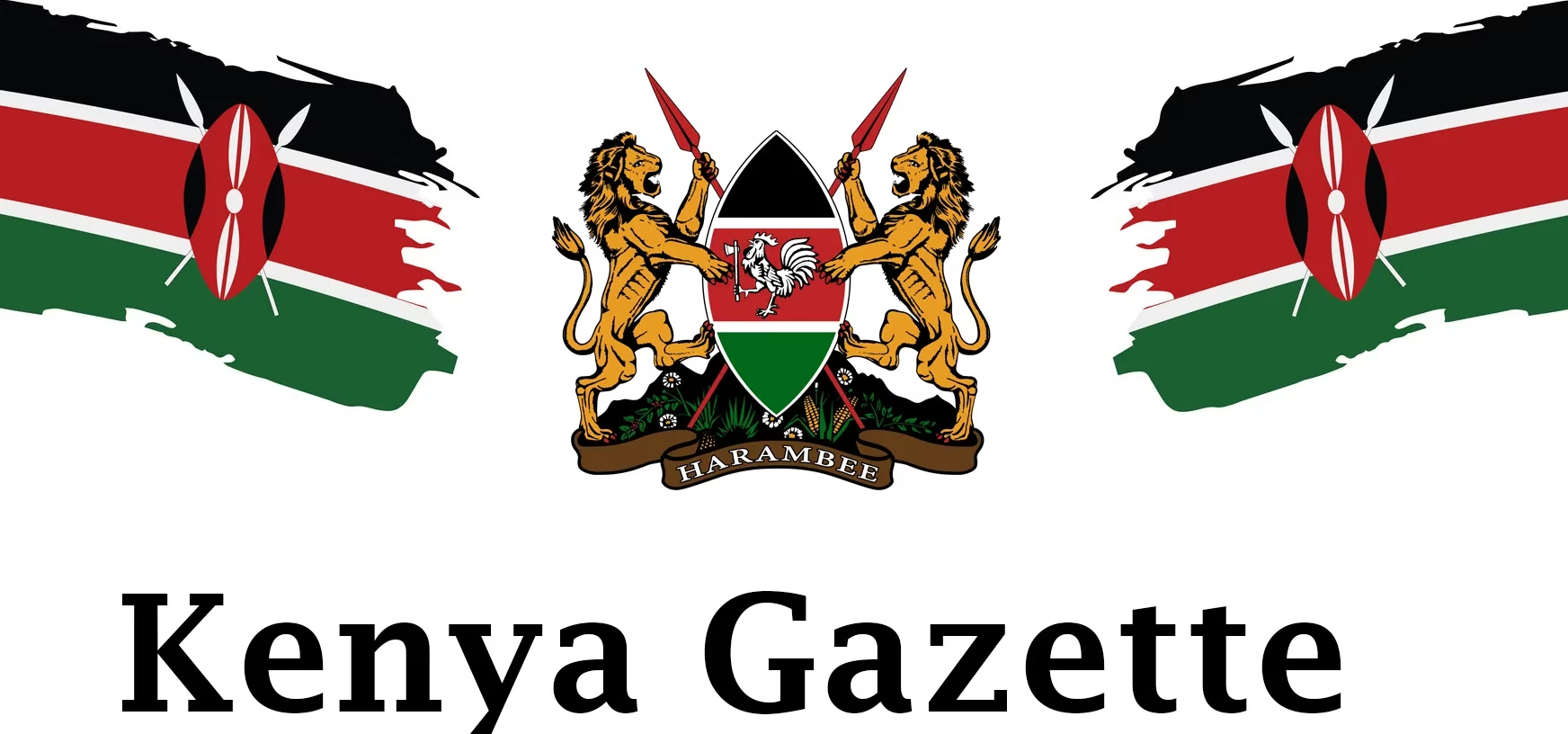

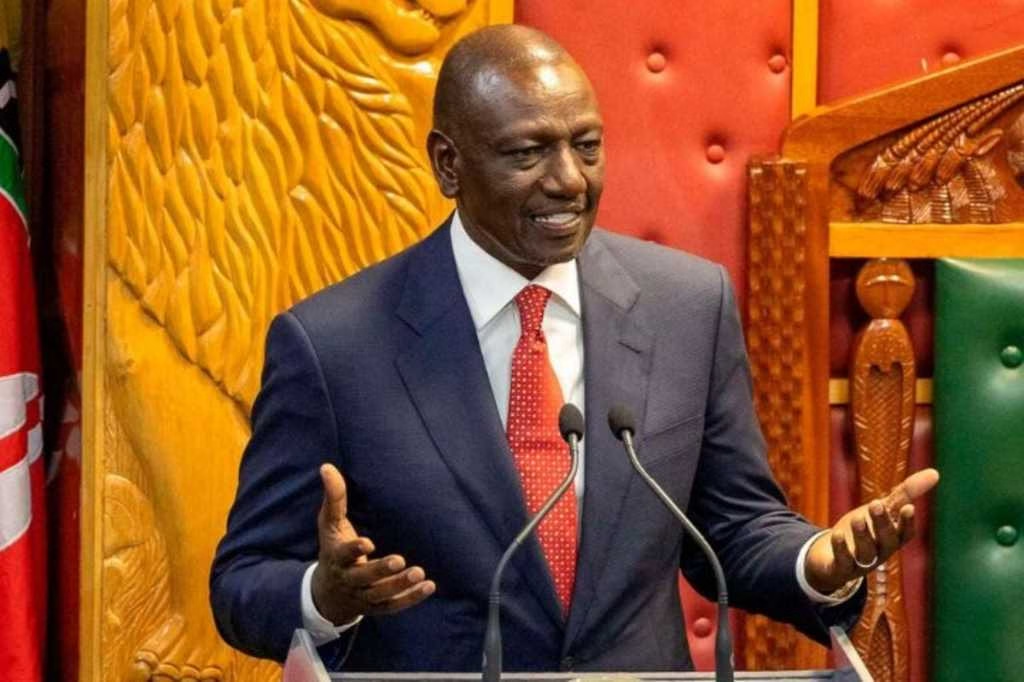
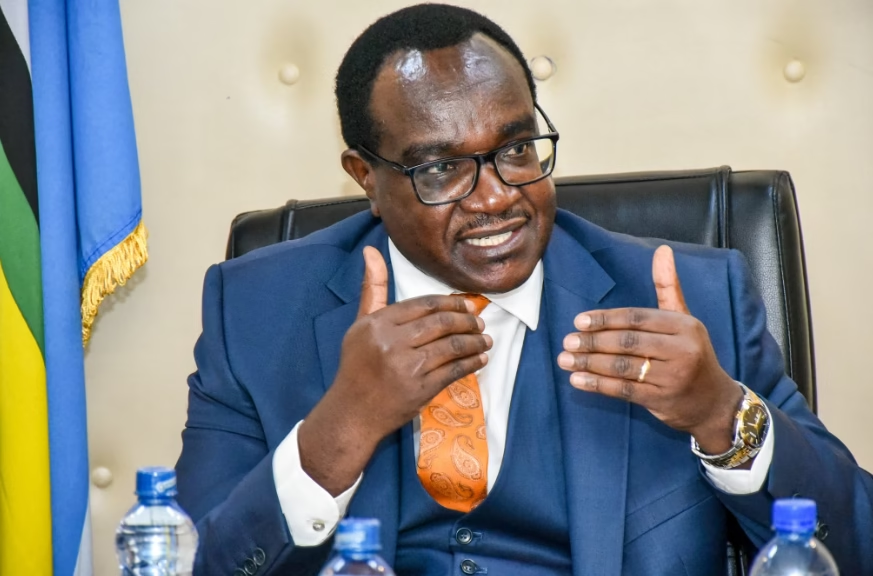
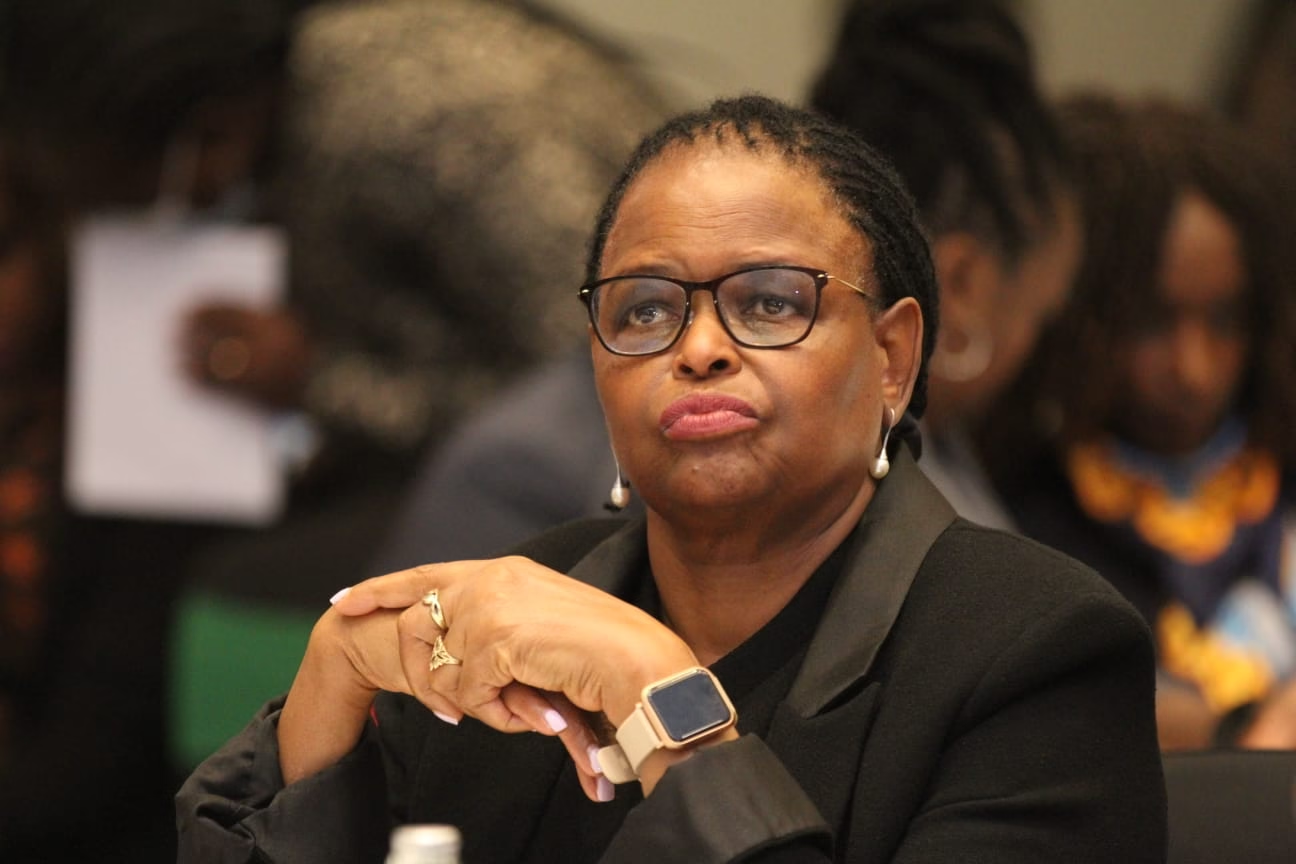
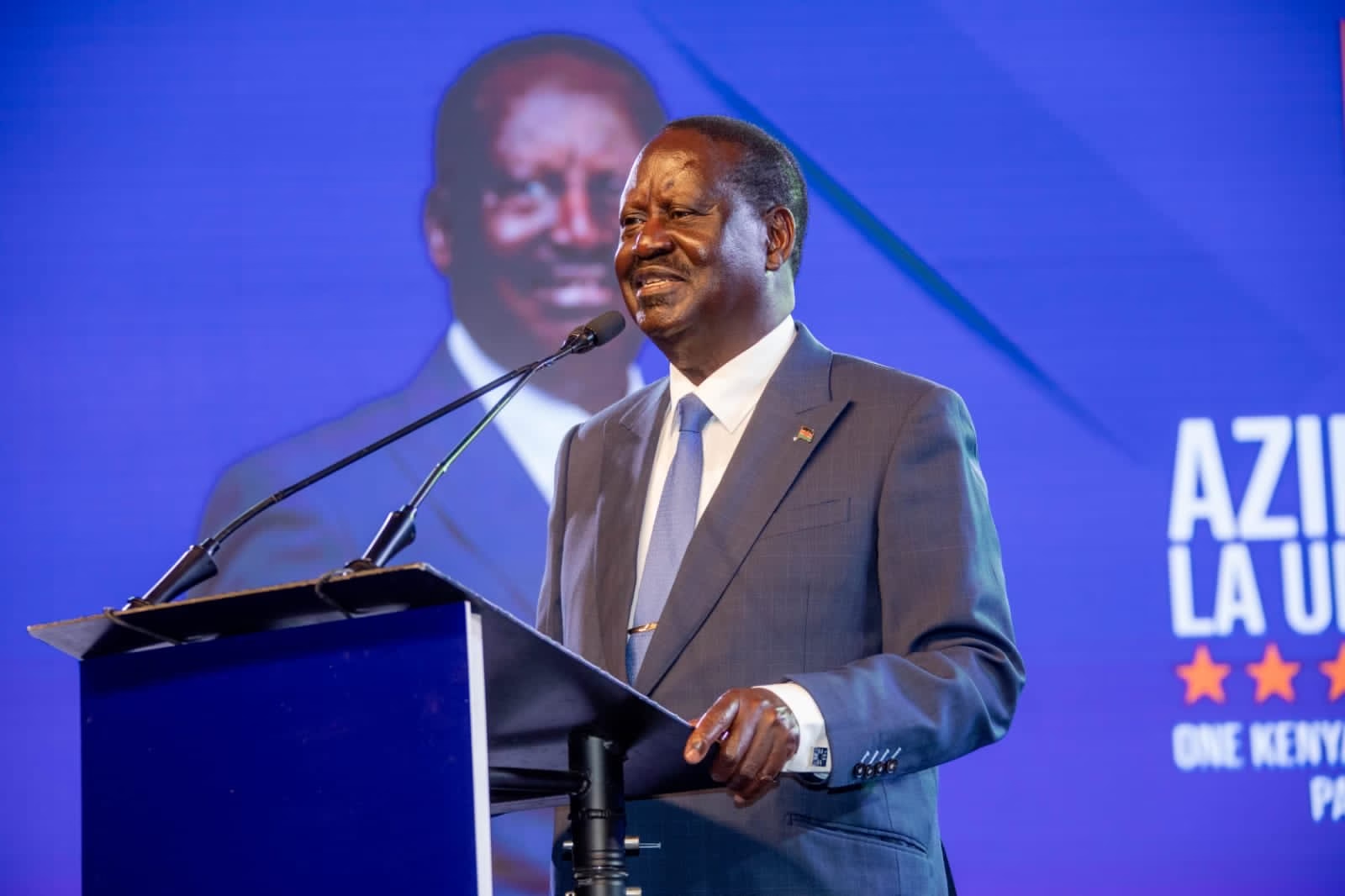
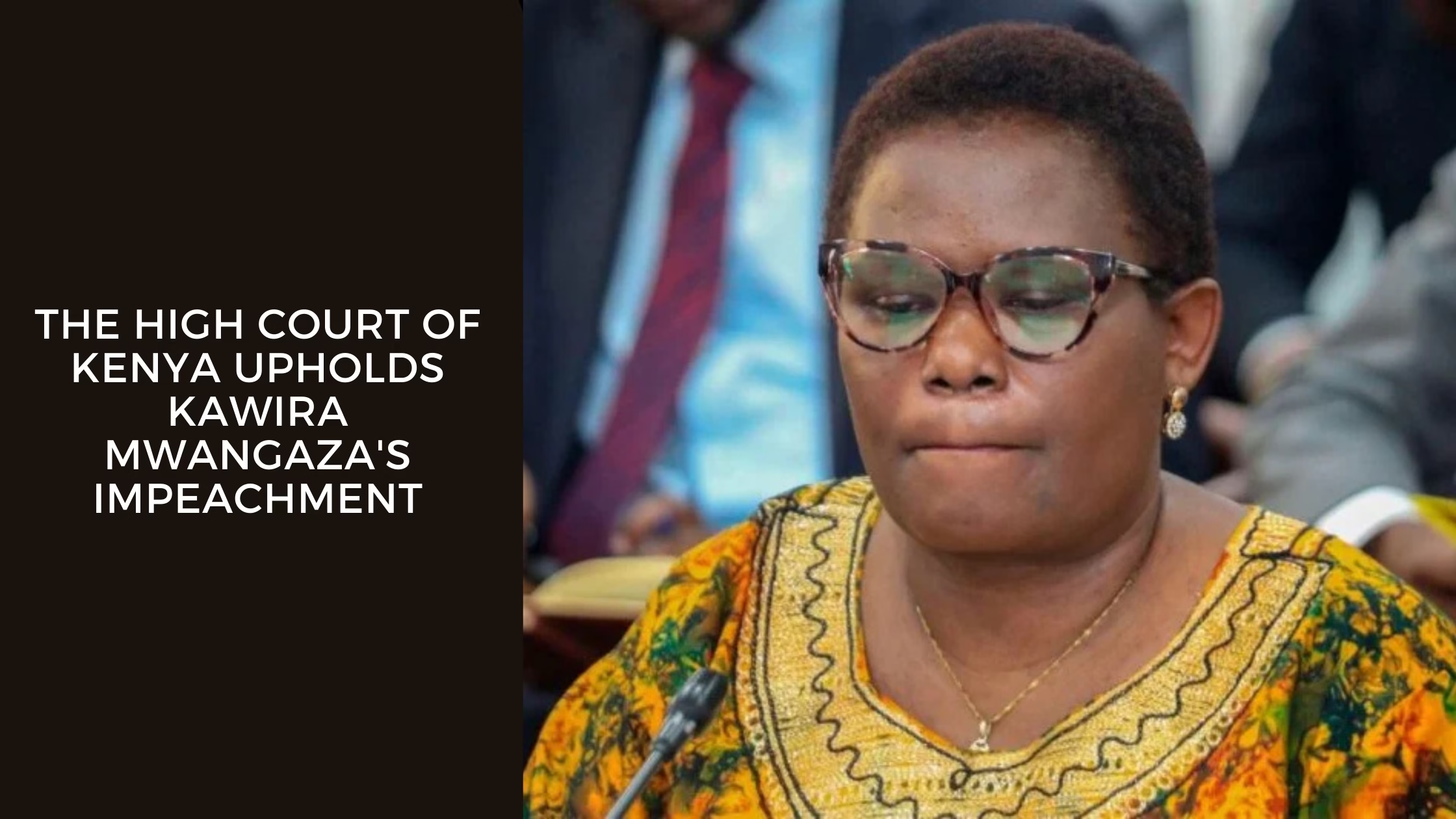
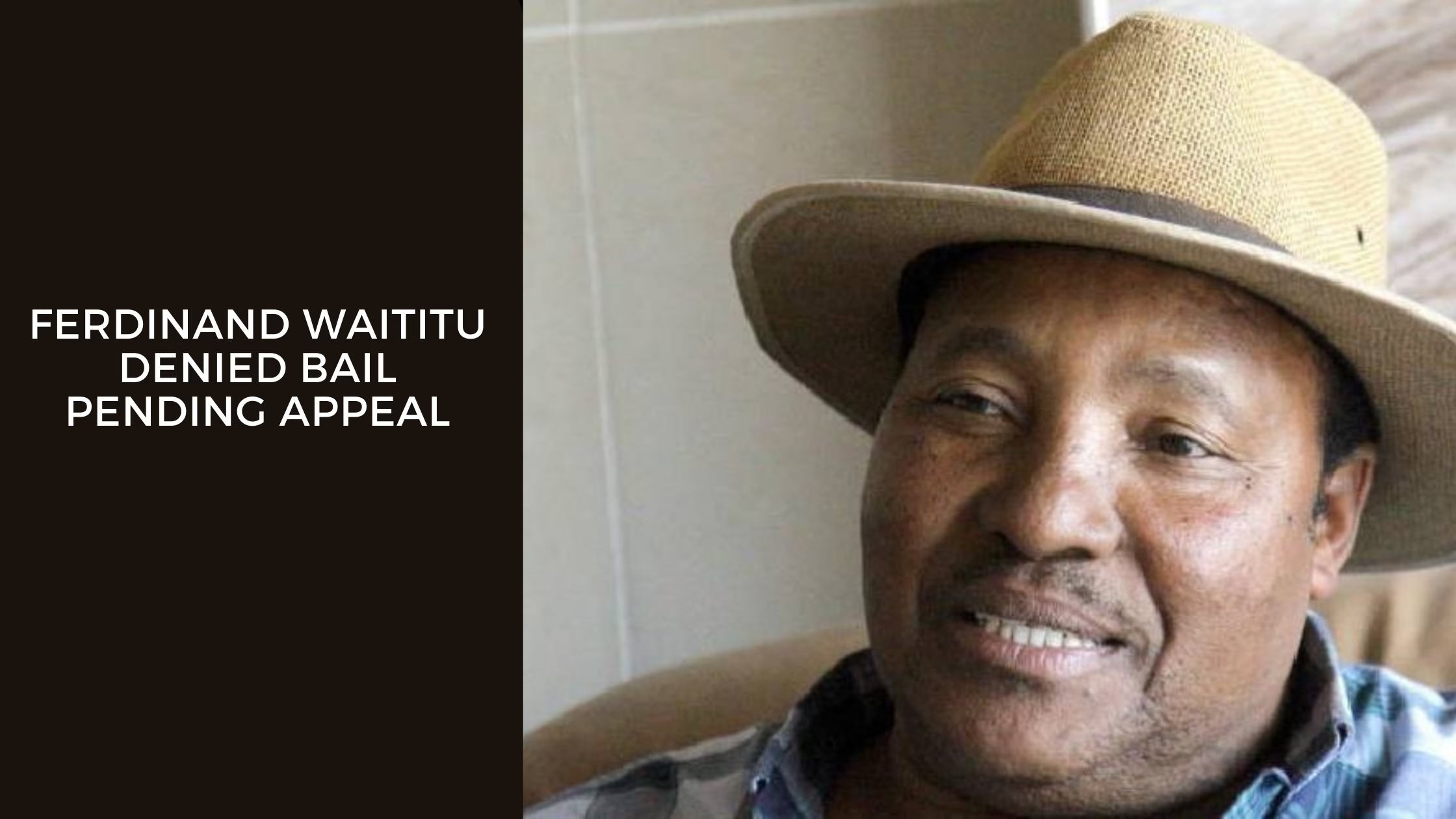
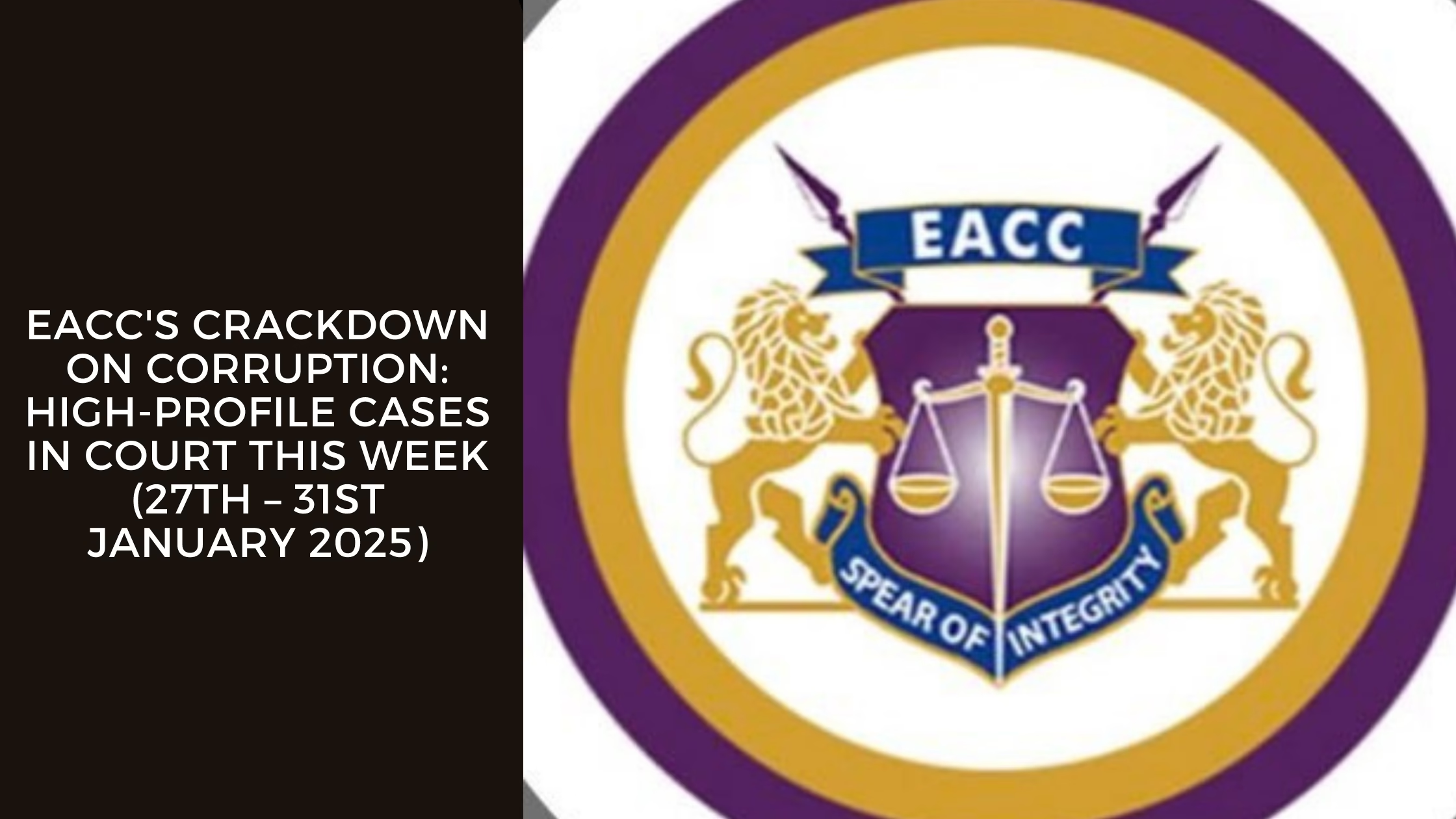
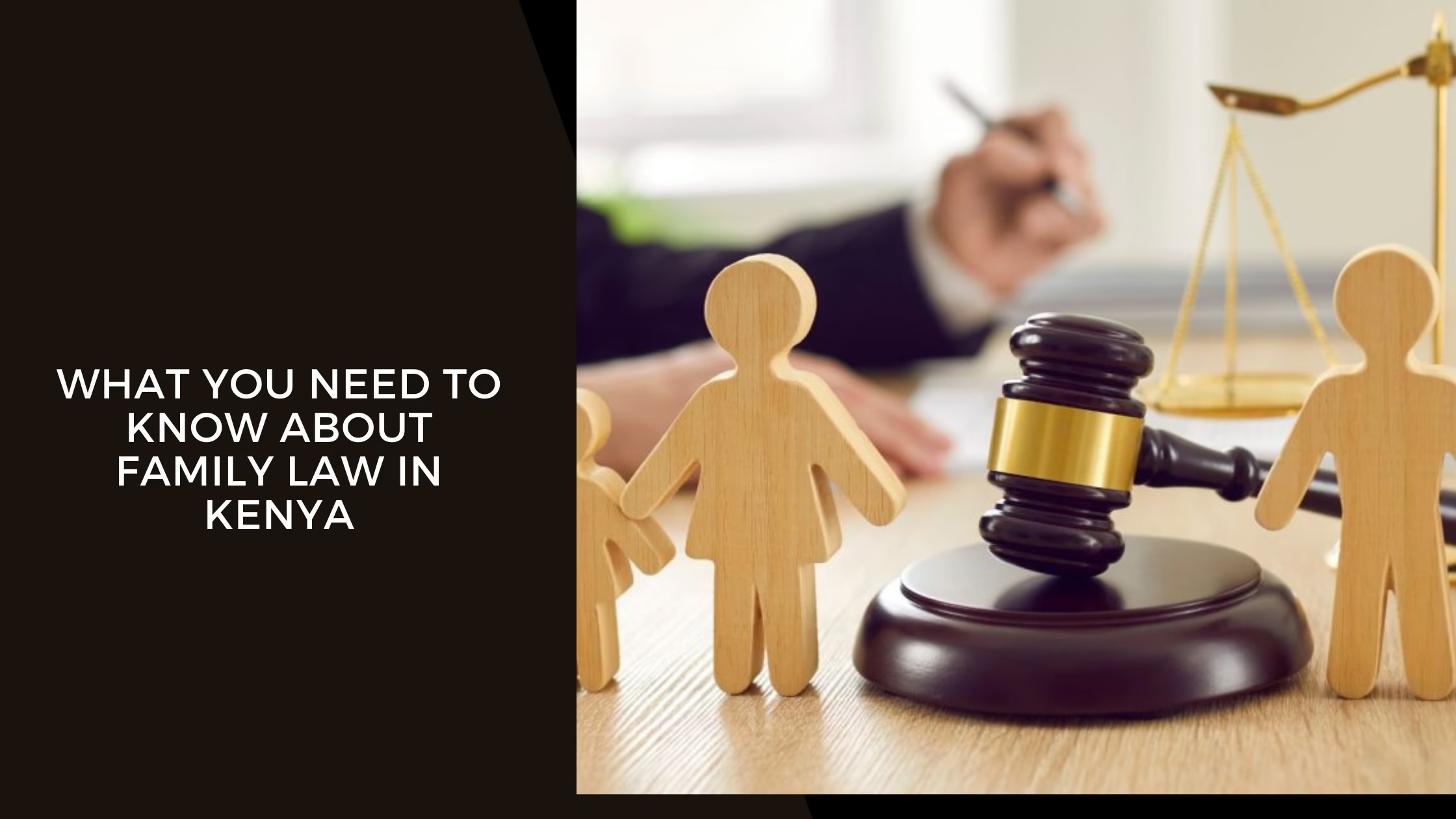
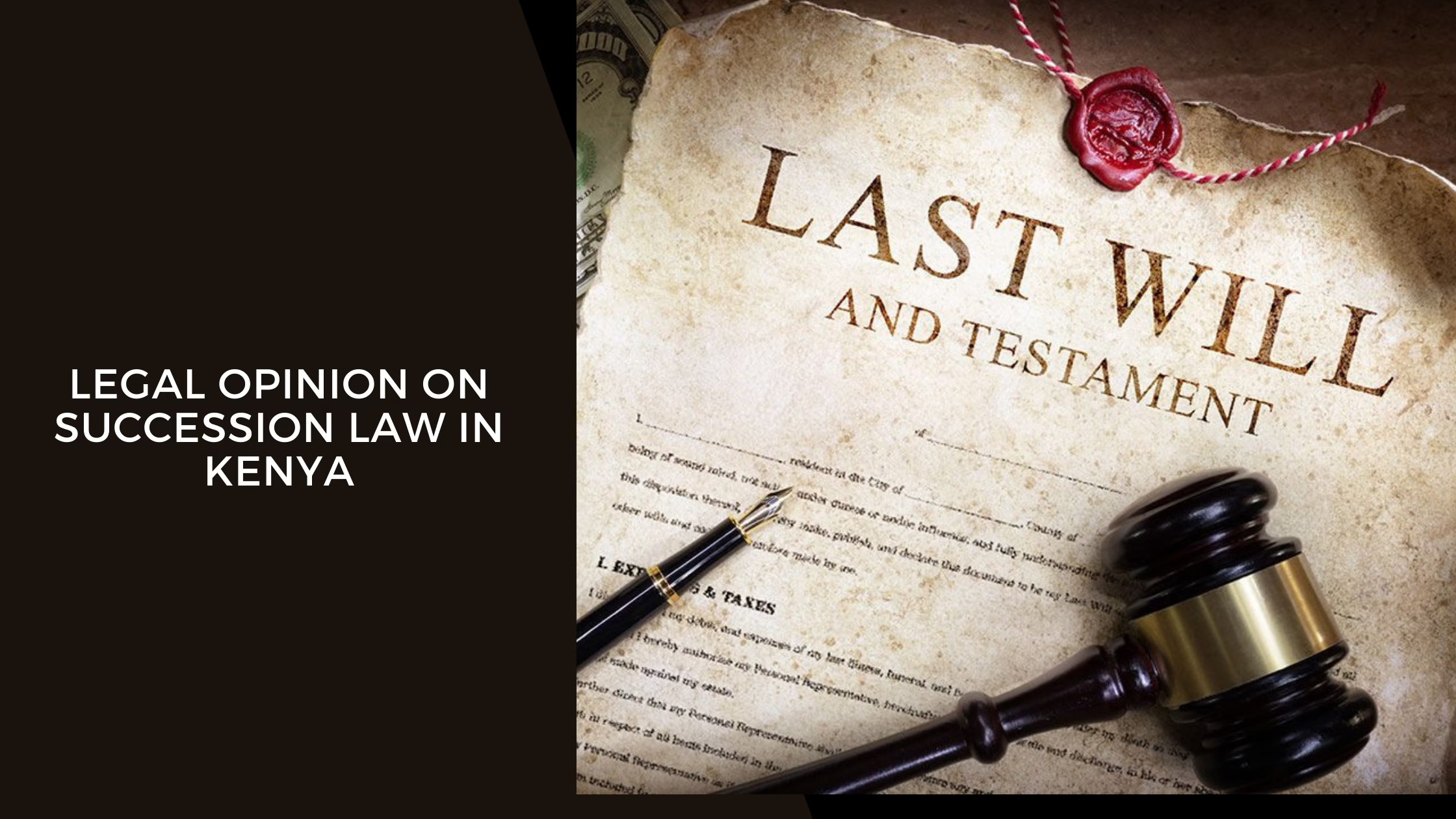
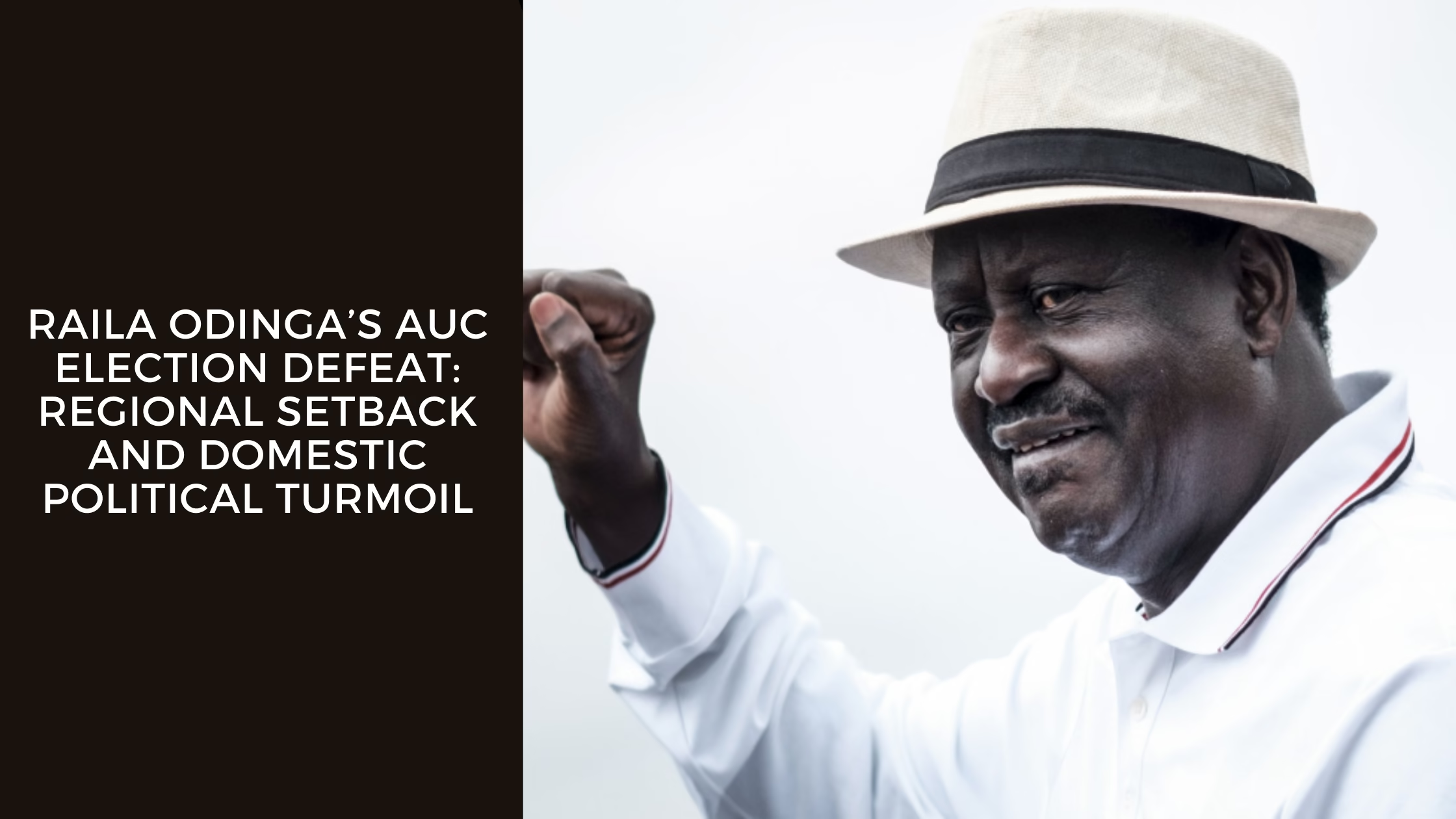

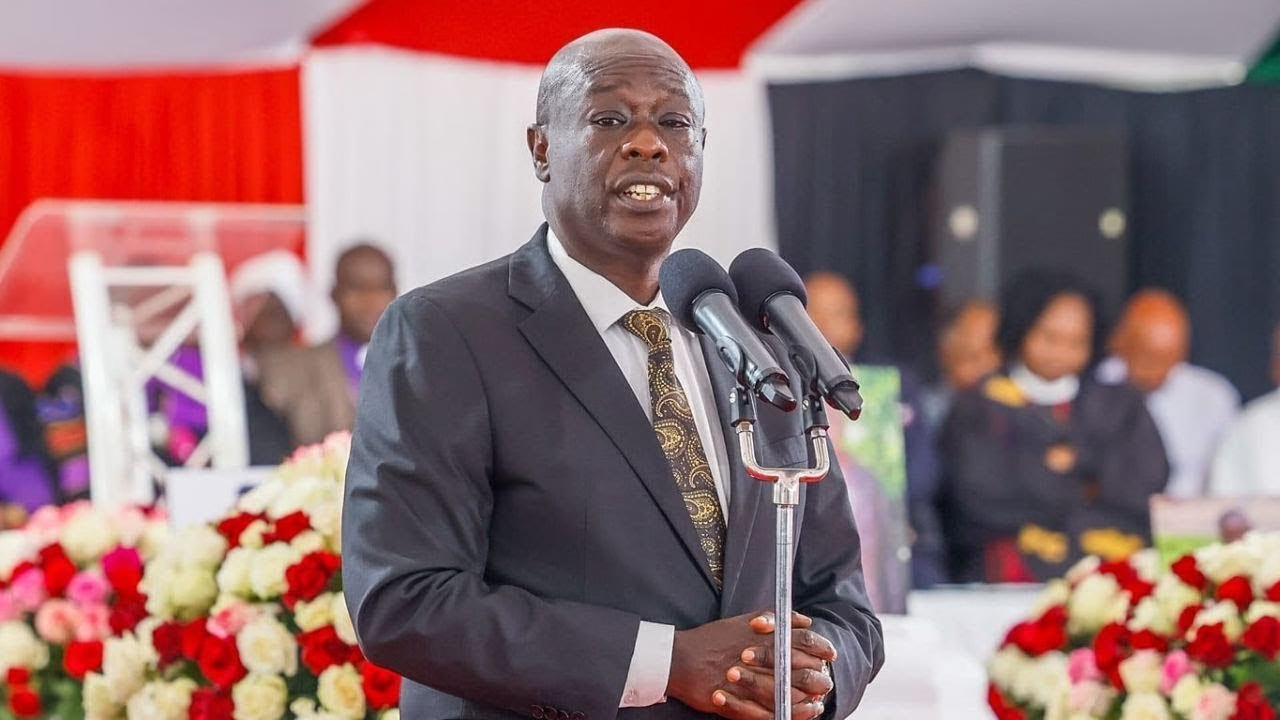
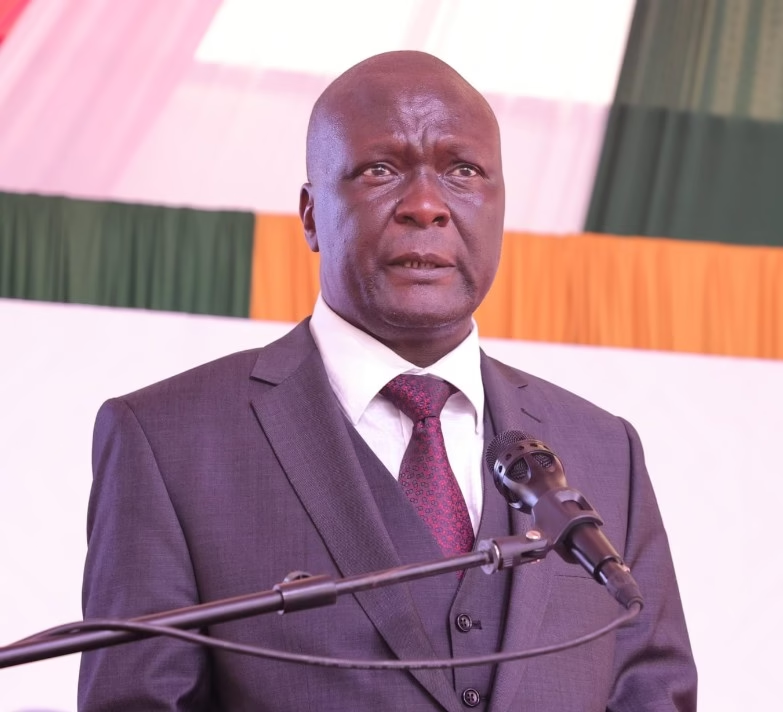
Leave a Reply